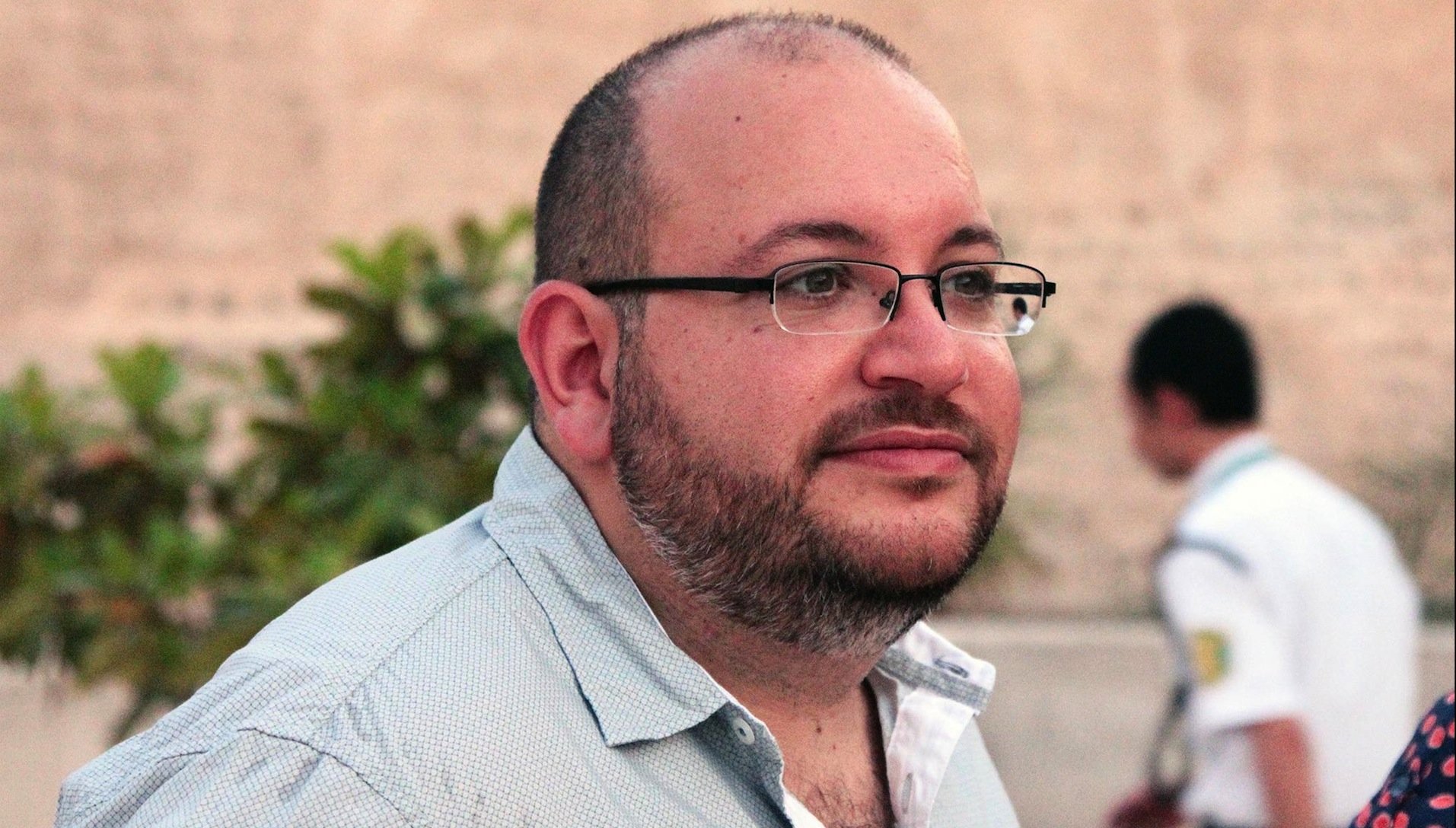
Amid contentious US-Iranian relations, Iranian state television announced the release of four dual-nationality prisoners on Saturday as part of a swap, including Washington Post reporter Jason Rezaian.
According to The Washington Post, Rezaian "was to be promptly flown out of the country with the three other released detainees, one of whom was not previously known to be held."
"Also scheduled to be on the Swiss plane were Rezaian’s Iranian wife, his mother and accompanying doctors," the paper reported.
In return, the US is scheduled to release seven people charged with violating sanctions against Iran, The Associated Press reports.
A report by the semi-official ISNA news agency quoted a statement from the Tehran prosecutor’s office as saying the inmates were freed "within the framework of exchanging prisoners," without elaborating. The US did not immediately confirm the Iranian report.
Iran was known to be holding four Americans. According to The Washington Post, Secretary of State John Kerry frequently asked about Rezaian and other imprisoned US citizens as part of the negotiations leading up to last year’s historic nuclear deal. Despite the brokered agreement, the prisoner swap was not part of the resulting deal.
In addition to Rezaian, Amir Hekmat, Saeed Abedini, and Nosratollah Khosrawi were also released, according to reports.
Jason Rezaian, 543 days in prison
 Thomson Reuters
Thomson Reuters
Rezaian, 39, The Post’s Tehran bureau chief since 2012, was arrested along with his wife and two photojournalists on July 22, 2014. All, except for Rezaian, were later released.
On November 22, 2015, an Iranian court sentenced Rezaian to prison.
Rezaian was accused of "collaborating with hostile governments" and disseminating "propaganda against the establishment," among other charges, according to a statement from Rezaian’s attorney, The Washington Post reported in April.
In the indictment, Iranian authorities said Rezaian had written to US President Barack Obama and called it an example of contacting a "hostile government," the Post said.
Former US Marine Amir Hekmati, 1,601 days in prison
 US Marine CorpsUS Marine Corps photo of Amir Hekmati.
US Marine CorpsUS Marine Corps photo of Amir Hekmati.
Hekmati, 32, of Flint, Michigan, served during Operation Iraqi Freedom and was detained in August 2011 on espionage charges. His family says he has lost significant weight and has trouble breathing, raising fears he could contact tuberculosis.
Hekmati went to Iran to visit family and spend time with his ailing grandmother. After his arrest, his family says they were told to keep the matter quiet. He was sentenced to death in 2012. After a higher court ordered a retrial, he was sentenced to 10 years in prison in 2014.
Pastor Saeed Abedini, ~1,218 days in prison
 WikipediaSaeed Abedini.
WikipediaSaeed Abedini.
Abedini, 35, of Boise, Idaho, was detained for compromising national security, presumably because of Christian proselytizing, in September 2012. He was sentenced in 2013 to eight years in prison.
Obama met Abedini’s wife and children in 2015. There are claims he was beaten in Iranian prison.
Abedini was previously arrested in 2009 and released after promising to stop organizing churches in homes. At time of arrest, was running an orphanage in Iran.
Nosratollah Khosrawi
The detention of Khosrawi had not been previously publicized.
Not included in the prisoner swap is Siamak Namazi, who is believed to be in his 40s and is a businessman and the
son of a former governor in the oil-rich Iranian province of Khuzestan, The Atlantic reports.
 Screen grab CSPANSiamak Namazi.
Screen grab CSPANSiamak Namazi.
According to The Washington Post, "Namazi’s family came to the US in 1983 when he was a boy, and he later returned to Iran after graduating from college to serve in the Iranian military.
He has consulted on business opportunities in Iran for more than a decade."
Namazi was visiting Tehran at the time of his arrest on October 15.
Separately, Robert Levinson disappeared in Iran in 2007 while working for the CIA on an unapproved intelligence mission. American officials are unsure if Levinson, a former FBI agent, is even still alive.
Iranian officials deny knowing where he is. Levinson traveled to Kish Island and checked into hotel, purportedly investigating cigarette smuggling. He met US fugitive Dawud Salahuddin, the last man known to see him.
The CIA paid Levinson’s family over $2 million and some staffers lost their jobs over his unauthorized work. A proof-of-life video surfaced in 2011, saying he was being held by a group. His family received photos that year, too, of Levinson bearded, shackled, wearing orange jumpsuit and holding signs in broken English. He has seven children. He suffers from diabetes and high blood pressure.



